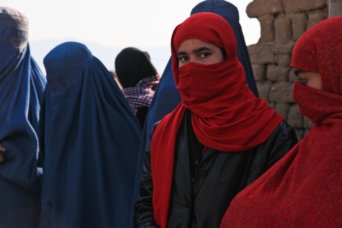- About
- Topics
- Story
- In-Depth
- Picks
- Opinion
- News
- Donate
- Signup for our newsletterOur Editors' Best Picks.Send
Read, Debate: Engage.
| topic: | Transparency and Corruption |
|---|---|
| located: | Afghanistan |
| editor: | Shadi Khan Saif |
The coronavirus pandemic continues to rip through Afghanistan, further exposing the vulnerability of the precarious state and posing a potential calamity of mammoth scale in the war-torn country.
Yet, bitter bickering among the political elite over power and perks in the future government combined with rampant corruption and abuse of funds at various levels of administration have produced a toxic cocktail.
Anticipations by the country’s health ministry is that the COVID-19 pandemic is going to claim at least over 100,000 lives, which is close if not more than the civilian casualties caused by the raging war in the past decade alone.
As a result, the desperation of the poor spills over in the Ghor province last week when those in need of aid and support took to the streets to protest against unjust distribution of aid only to face live ammunition of police, killing at least four.
As the future of democracy teeters on the edge of a precipice, the political elite seems physically and mentally occupied with wicked plans to cling to authority.
Intense political wrangling in Kabul is entirely centered around various proposals to distribute control of several state institutions, seen as lucrative dens of money making, such as ministries, directorates, provinces and even embassies abroad among rival factions to stitch together a new government; making bets in a burning house.
Ideally, as per the democratic principles, the verdict of the election commission should have been accepted, and the winners allowed to form a government and the loser playing a constructive role of political opposition, which is extremely essential to promote accountability and fairness.
The paradox of the Afghan political elite’s words and deeds is dark and stark with regard to their lavish lifestyle in such a miserably poor country.
Amid signs of donor fatigue in various world capitals and the rush on the part of the U.S. to withdraw troops, Afghanistan seems to be playing in the hands of the opportunists seeking to hold power with impunity. That is why the country’s western allies, fearing collapse of the nascent democracy, are pushing for an ‘inclusive government’ in a bid to patronise different power quarters.
Ideally, a political opposition out of power should be monitoring the government and holding it accountable. In the dearth of opposition, when all are part of the system, the critical evaluation and accountability are far from reality.
Even after COVID-19, the country is going to rely heavily on aid to maintain core state functions, which could only be sustained on the long-term through fairness and transparency, and not by gluing together a bunch of corrupt and greedy politicians with the power of money.
Image by Amber Clay

